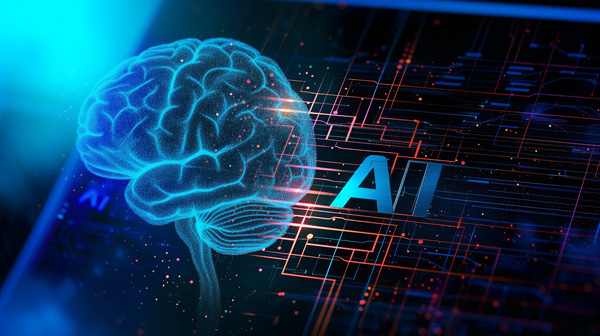AI Pro chips modeled on the human brain opened new possibilities

[Artificial Intelligence. Photo Credit to Pixabay]
Researchers at the Technical University of Munich (TUM) have invented a new AI Pro chip that can work independently without a cloud server or internet connection.
The AI Pro chip, designed by Professor Hussam Amrouch, was introduced as a breakthrough in efficient and secure AI processing on May 19, 2025.
As AI is increasingly embedded in everyday society, advances in AI chips, which play a crucial role in advancing capabilities of AI, carries a lot of useful possibilities for development in the AI industry.
AI chips are specially designed computer microchips that accelerate the execution of Artificial Intelligence tasks, which involve difficult and complex computations.
To achieve this, they typically incorporate a large number of faster, smaller and more efficient transistors, enabling them to work at higher speeds with lower energy consumption.
The traditional processor of conventional AI chips is based on an architecture that separates memory and processing units, which creates inefficiencies due to frequent data movements.
However, the AI Pro chip is designed using neuromorphic architecture, which integrates memory and processing units, similar to neurons and synapses in the human brain.
This innovative neuromorphic architecture enables it to perform calculations instantly, so it ensures complete cybersecurity and is up to ten times more energy efficient.
This is possible because the chip applies the principle of 'hyperdimensional computing' which recognizes similarities and patterns, but does not require millions of data records to learn.
For example, while conventional AI chips require countless images of motorcycles, AI Pro chips can combine diverse pieces of information, such as the fact that a motorcycle has two wheels, necessitates wearing a helmet on the head, and can have different shapes.
Furthermore, for advanced-memory systems, researchers used a new computational paradigm using special circuits, known as ferroelectric field effect transistors (FeFETs).
To replicate the human brain, where neurons handle the processing of signals, while synapses store information, FeFETs transistors are used in the chips.
FeFETs are electric switches that contain ferroelectric material, which reverses poles when a voltage is applied.
Due to the special characteristics of FeFETs, they can store information even when disconnected from the power source, guaranteeing simultaneous storage and processing of data within the transistors.
Professor Amrouch said, ‘‘This mix of modern processor architecture, algorithm specialization and innovative data processing makes the AI chip something special.”
Since AI industries seek to enhance data security and reduce energy consumption, the AI Pro chip’s potential for real-world applications has attracted considerable attention.
The AI Pro chip has already progressed beyond the conceptual stage, with prototypes manufactured by Global Foundries in Dresden.
This advancement indicates that the chip is ready for integration into commercial products.
Within the next few years, this AI Pro chip is expected to be deployed in edge AI devices, generative AI systems, deep learning algorithms, autonomous vehicles, and robotics.
As the AI Pro chip’s advanced capabilities enhance AI product performance and improve the quality of the AI industry, the development is a pivotal step toward more secure, efficient, and intelligent AI-driven technologies across industries.

- Bomi Han / Grade 11 Session 3
- Thornhill Secondary School

![THE HERALD STUDENT REPORTERS [US]](/assets/images/logo_student_us.png)
![THE HERALD STUDENT REPORTERS [Canada]](/assets/images/logo_student_ca.png)
